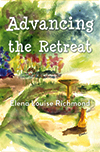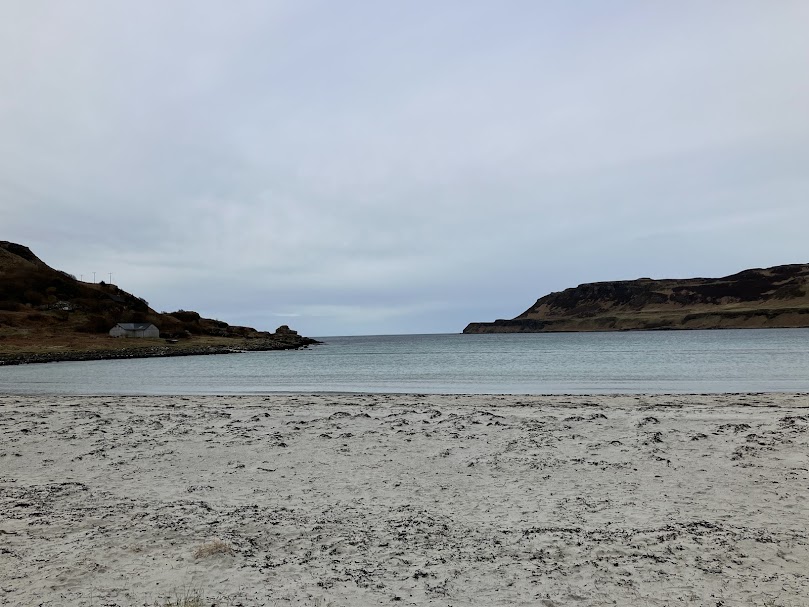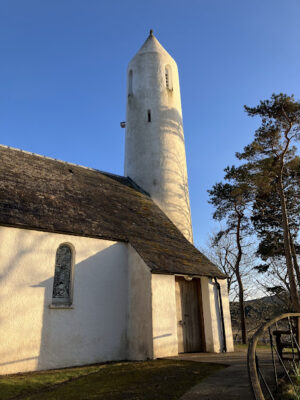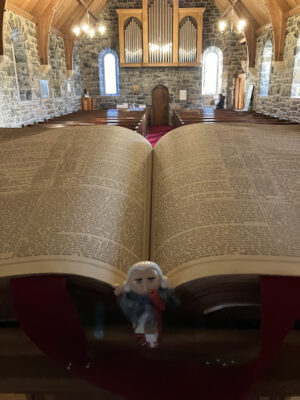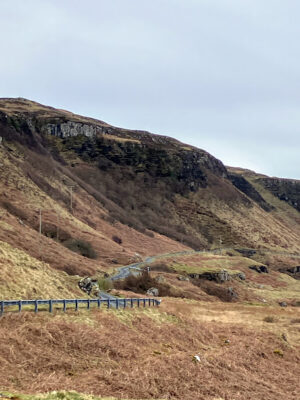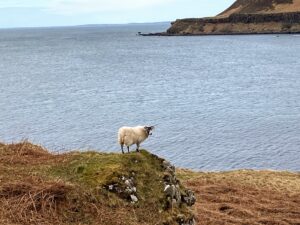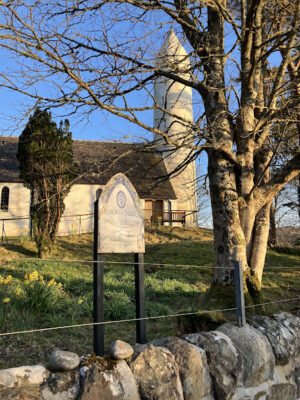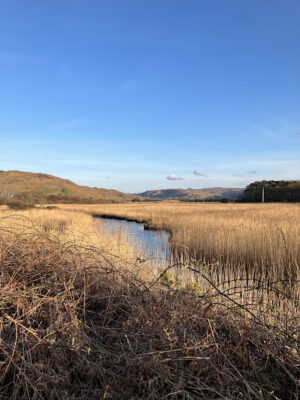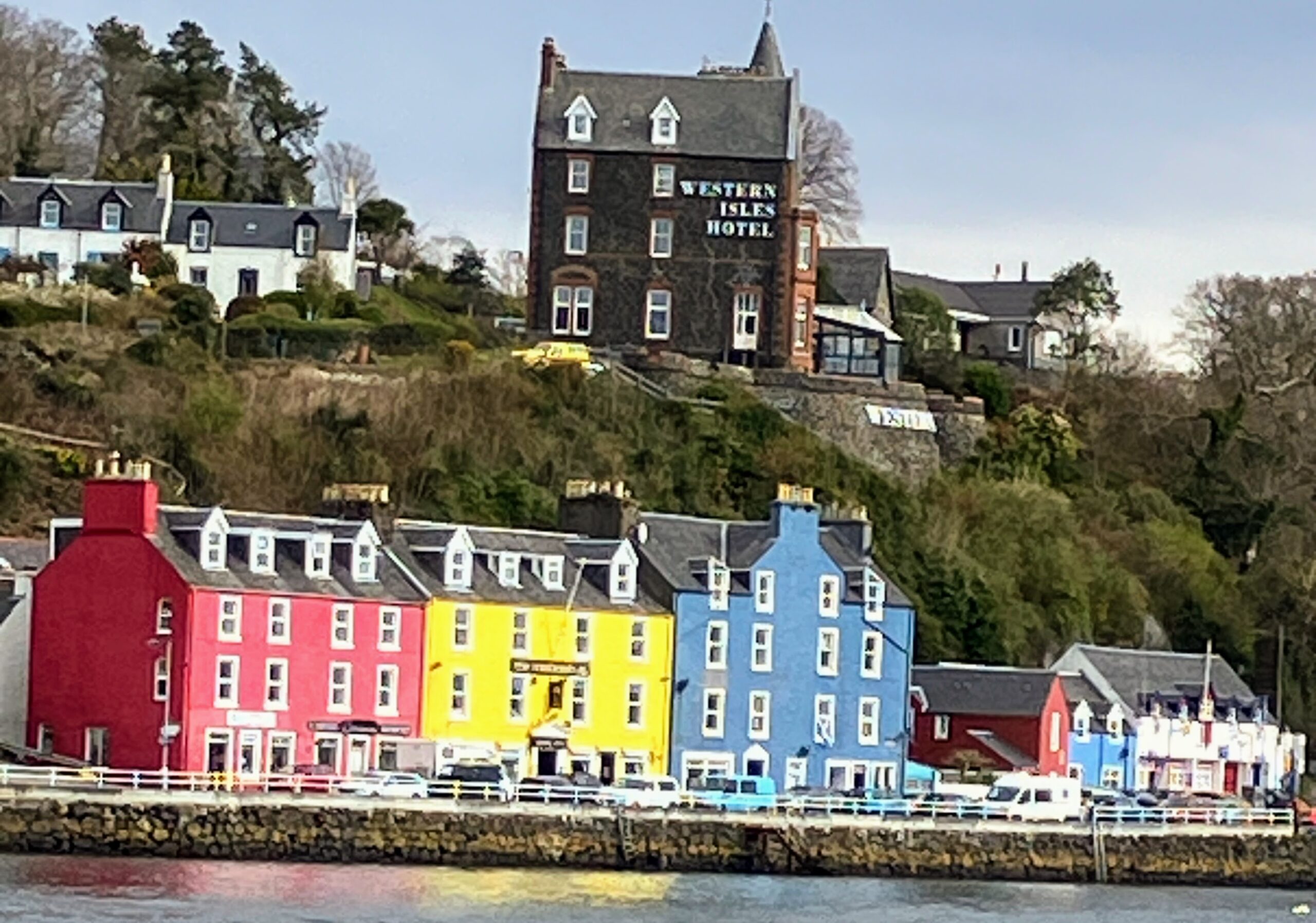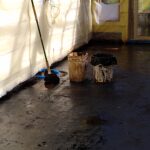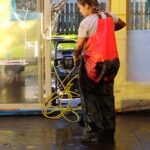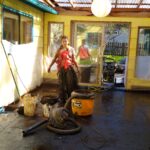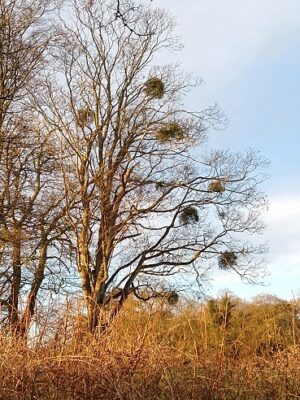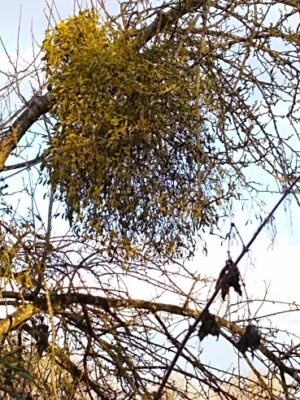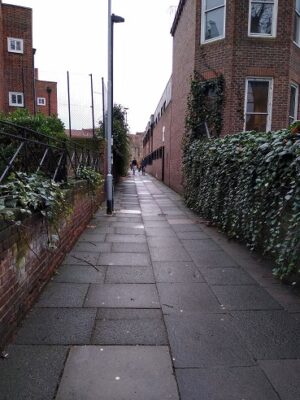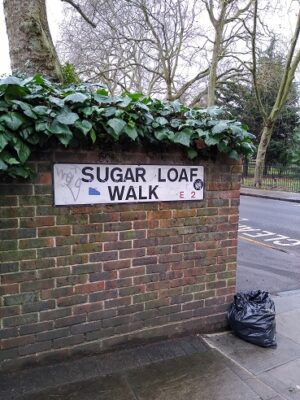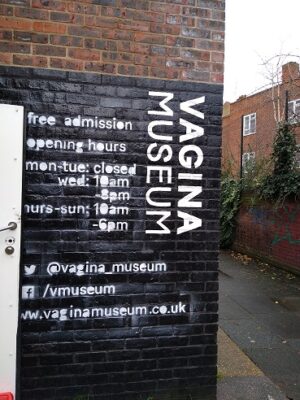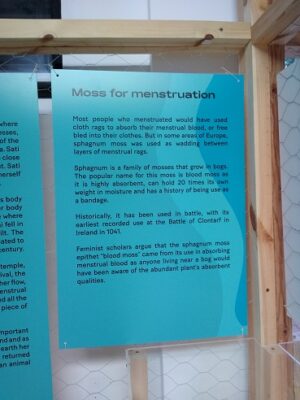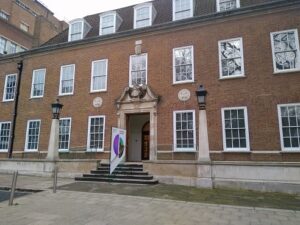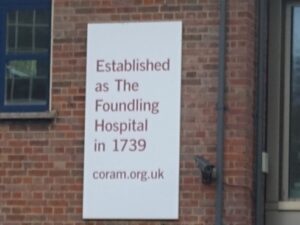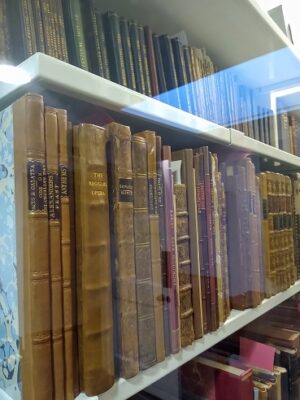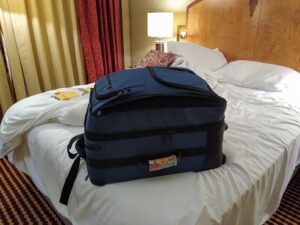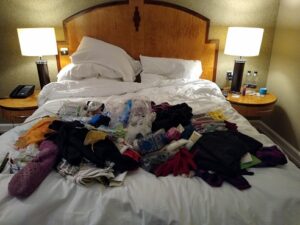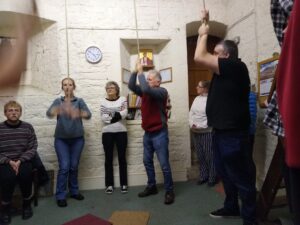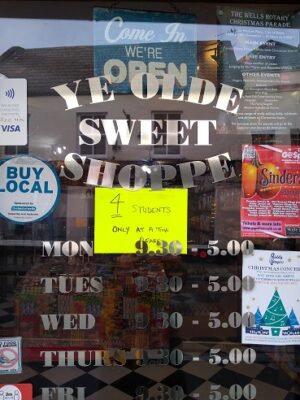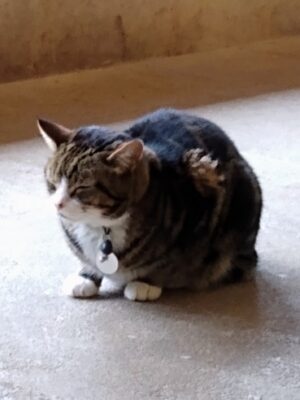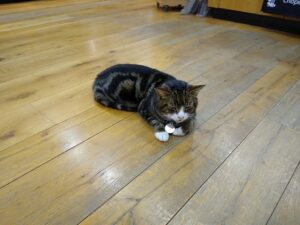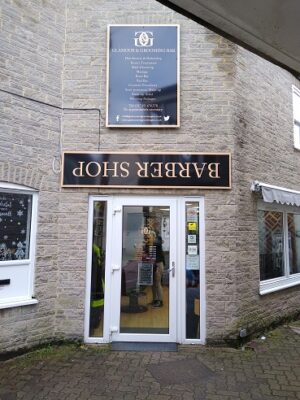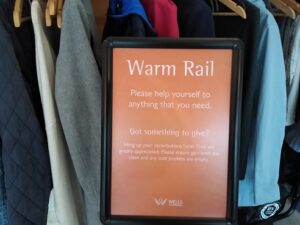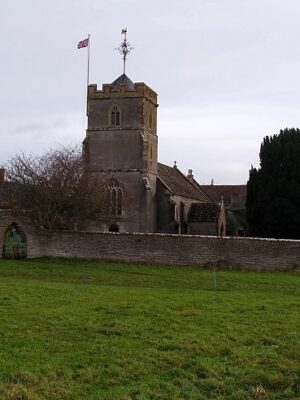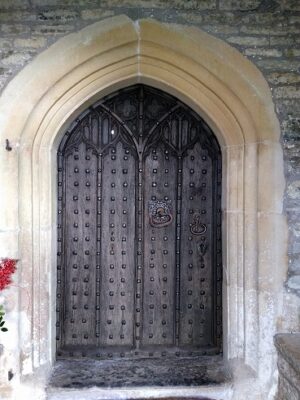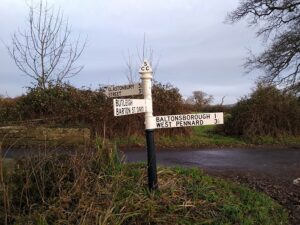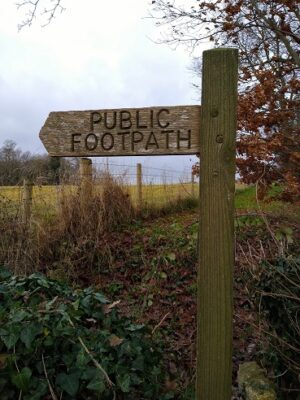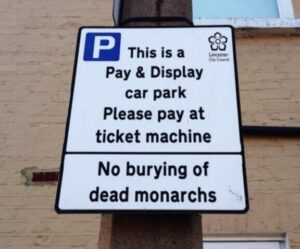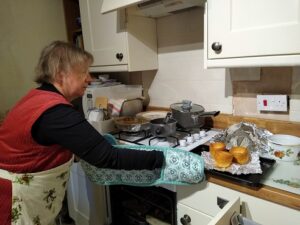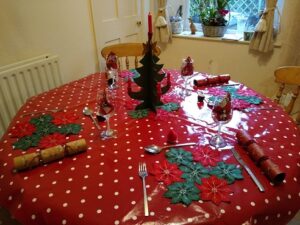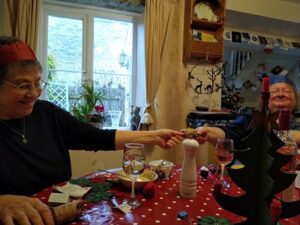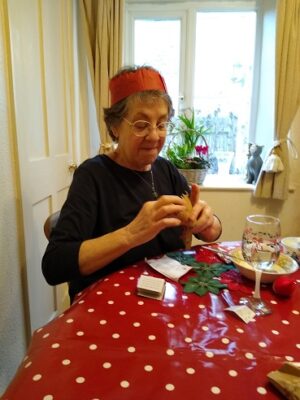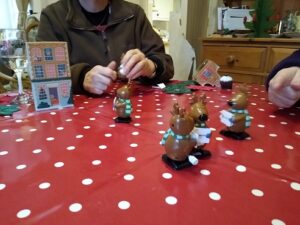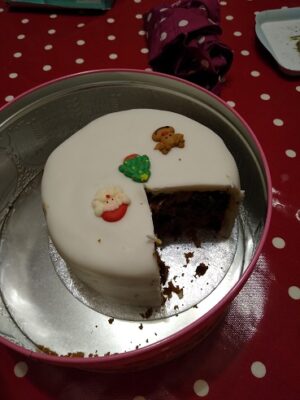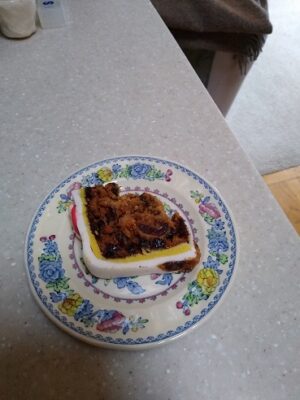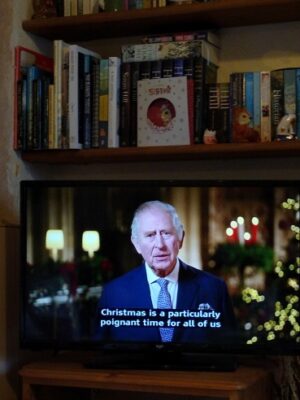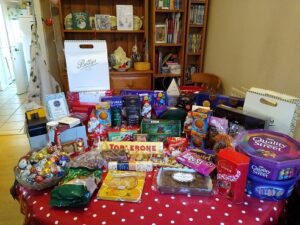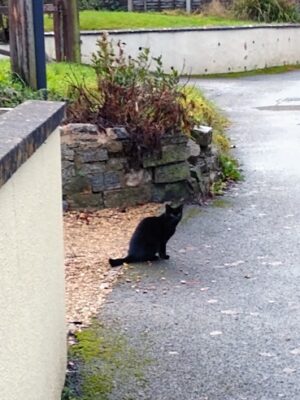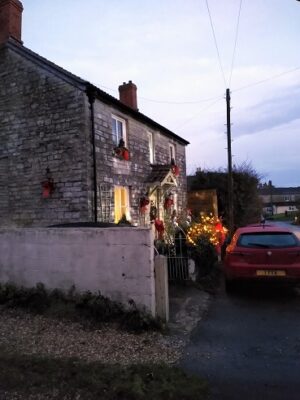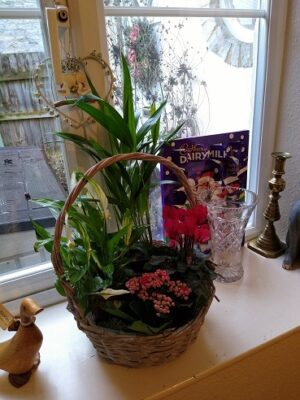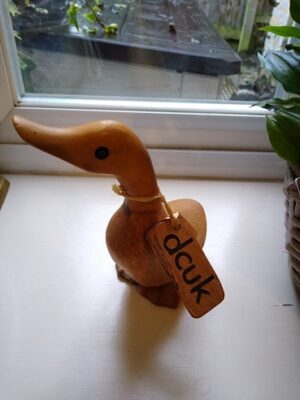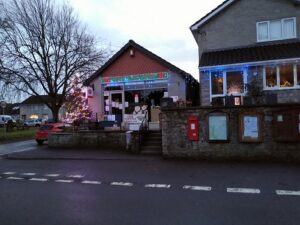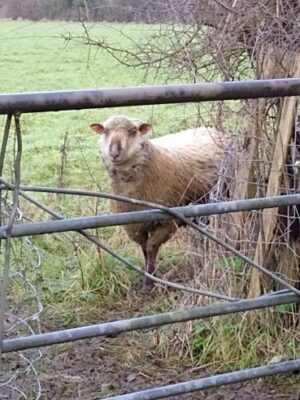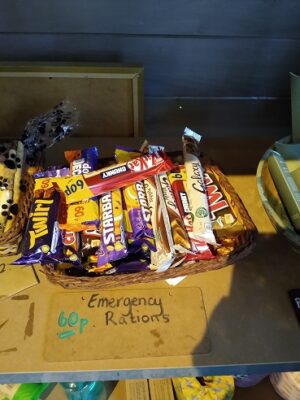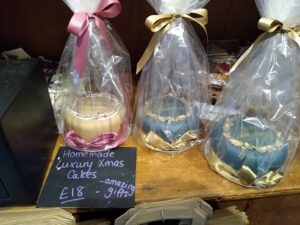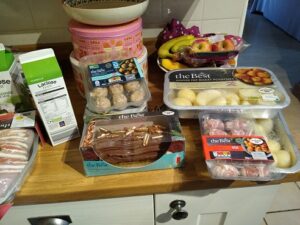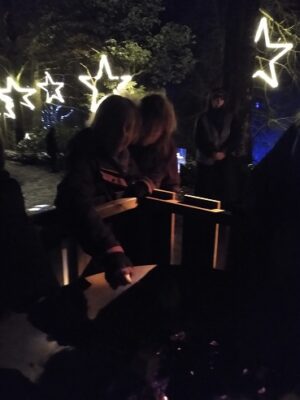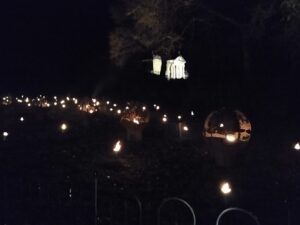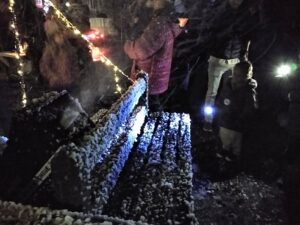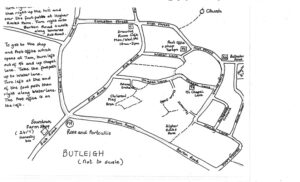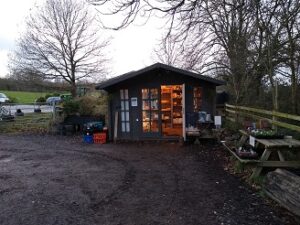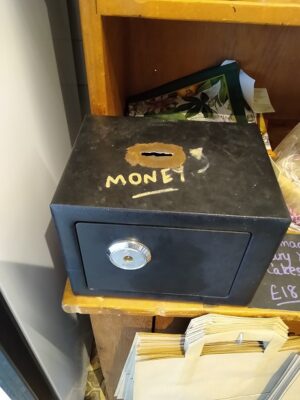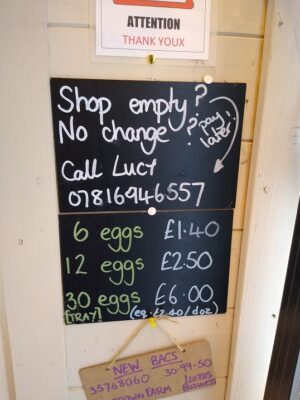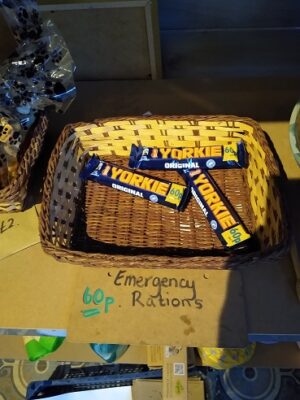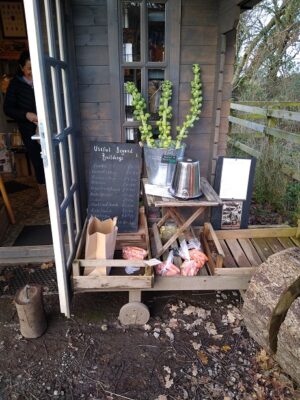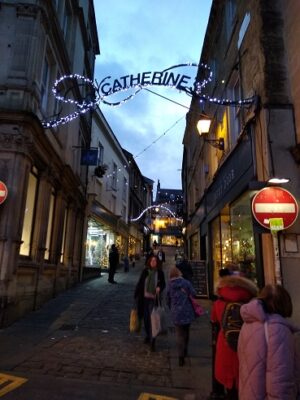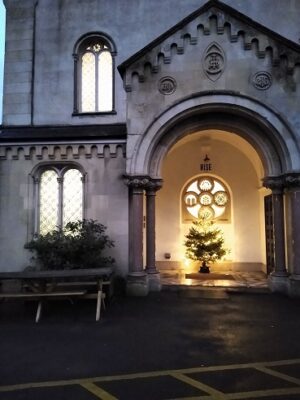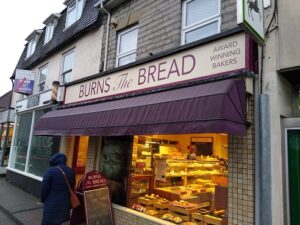3. A Spring in Britain: Easter
Easter morning on Calgary Bay. In my jet-lagged stupefaction, I kept trying to say something clever about this and had to patiently remind myself over and over that it was Calvary that had Easter associations, not Calgary.
Our holiday cottage was on Calgary Bay on the isle of Mull in the Inner Hebrides. Ours was one of handful of houses that appeared mostly empty. A few people camped on the beach in tents or camper vans and we watched them huddle around their fires while we enjoyed an enormous house with three bedrooms, three bathrooms and two living areas, all splendidly appointed and scrupulously labelled, right down to rubber bands and Covid tests. After the adventure of getting here, it was a relief to find it so welcoming.
The British Daylight Saving is called “Summertime” and we entered it on Easter morning. I had brought chocolate from America –Sue likes the Russell Stover strawberry creme eggs. Wendy had brought garlands and more chocolate and both of them gave me cards. I rummaged around in the well-appointed house and found among the children’s craft supplies some green paper out of which I cut Easter grass, something they don’t have in England.
We lounged around, talking, drinking tea, making plans and discussing Tick Billy up one side the house and down the other. Sue had been awake a good part of the night feeling anxious about our experience with him. He wove in and out of my sleep, such as it was, what with being wide awake at 3:00. We agreed that we had all felt threatened, then tried to analyze whether what had happened had been menacing in the legal sense. Sue declared that she was going to report the incident.
Sue and I perused the extensive collection of books and DVDs available but Sue said they were mostly “bloke books.” I left copies of my two books, 99 Girdles on the Wall and Advancing the Retreat next to the bloke books, happy to get them out of my suitcase as well as all the Easter chocolate and the ice-wine maple sugar candy and salt water taffy the cousins had asked for.
Wendy had declared Sunday to be a no-car day but by the evening she decided we’d drive as far as Dervaig, which was about halfway to Tobermory, to see the Rocket Church or as it’s officially known, the Kilmore Church of Scotland. Sue, a brilliant photographer, wanted some photographs.
Now here I must digress a bit and tell you about paraplegic Mozart. Andrew and I had been playing a back-and-forth game where we planted a little plastic figure in 18th century clothes in each other’s house. (Wendy suggested it might be Lord Nelson but I told her I didn’t think many Americans knew who Lord Nelson was.) I decided it was Mozart and he ended up in my luggage. I had him in my pocket or my purse during my trip and he somehow lost a leg and an arm but still managed to enjoy his trip to the U. K. Here he is in the Rocket Church.
That night I slept a full 8 hours without waking. Up early, I went for the walk Sue and Wendy had taken without me on Easter because I had fallen asleep for the second time that day at only 12:30 in the afternoon. The walk goes either straight across the beach or across an enclosed field above the beach, whichever one prefers. The tide was out so I walked along the beach and annoyed the geese. On the other side, I found a walking path to take me to an old granite pier that was chained off and inaccessible. But there was a stile involved — I always love those– and a stinking sheep’s carcass on the beach so it was worth it.
We went into Tobermory and did the Monday farmer’s market and all the wee shops, got more groceries and had fish ‘n’ chips for lunch. All along the harbor front, in every shop, I asked “is the cat about?” An enormous orange male cat makes a life for himself in Tobermory. He sleeps in the hardware store, dines at the chippy and entertains the tourists by wandering amongst them and sleeping in rope coils on the wharf. He had apparently already done his morning rounds so no one had any recent intelligence on him.
It was Sue who spotted him lounging outside a private home, the door of which was cracked open so he could come and go as he pleased. As we approached slowly, taking baby talk, cameras ready, he deigned to look at us at first. But we coaxed a little action out of him. He came over to me when I rattled my paper sack but lost interest when nothing to eat came out of it. The woman who lived in the house came out. She told us his name was Ledaig, pronounced “letch-ick.” It means “safe harbor.” “He’s the Tobermory cat, you know,” she said brightly. Ledaig has certainly found a safe harbor for himself in Tobermory.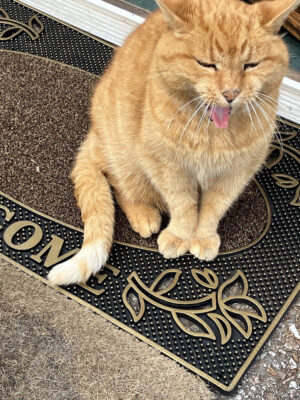
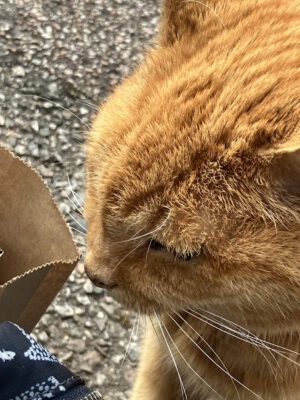
I popped into the tourist office. I knew we were going to Fionnphort the next day to board a boat for Iona. (Fionnphort. Iona. Remember those words.) I wished I could have been some help to Wendy, maneuvering the large Vauxhall on narrow, winding roads. The map gave no indication as to which roads were paved and which were no more than rocky paths. I thought I would do my part to help
“What’s the best way to get to Fiona?” I asked.
The fellow at the counter looked at me with amusement and asked kindly, “Did ye mean Fionnphort?”
“To go to Fiona, yes.”
“Iona.”
“Oh yes, Fionnphort. Iona,”
I was glad I asked because he showed me the road that the locals take because it’s paved. So the next day, Tuesday, we were off to Fiona. Iona.
 RSS Feed
RSS Feed